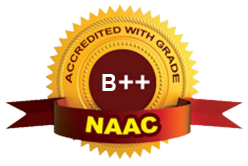The job of development of SILM (Self Instructional Learning Material) is done in a very systematic manner in different phases. These may be enumerated as follows:
The University has its OER policy and faculty of the University take help from the OERs as well.
The entire process of preparation of SILM is handled by the course coordinators and the MPDD of the University.
Thus, the University has a proper and well-defined policy for development of SILM and it is segmented in various stages to ensure the fault-free systematic development of SILM for its learners. In this process extensive use of technology is made because the University has a very strong system of ICT in place and the teachers are also comfortable in preparing a print-ready copy of the material on their own computer systems.
- Finalization of policy guidelines for writing of SILM: In the year 2011-2012, the University conducted many lectures and workshops, wherein, experts from IGNOU were invited to explain the patterns of writing of SILM. Based upon these deliberations a committee was constituted and the policy guidelines were formulated. These guidelines are followed in the writing of SILM by the Unit Writers (Manual for SILM development http://www.uou.ac.in/sites/default/files/2020-03/SLM_manual_english_revised_2011_1.pdf).Further, workshops of unit writers were carried out for two to three days to sensitize them about the pattern and shape of SILM.
- Constitution of Expert Committees: In every programme, before taking up a particular programme, the expert committee is constituted. It deliberates about the course contents, probable unit-writers, credits, and the other modalities related to the programme/ courses. The PPRs for each programme are prepared and these are also discussed in the meeting of the Expert Committees.
- Deliberation in the meeting of BOS: The recommendations of the expert committees are submitted to the BOS, which finally decides whether a programme of study can be launched. Further, the list of the unit-writers is finalised in this meeting and allocation of units is made on the basis of the specialization of the concerned writers.
- Plagiarism Check of units received: Once the material is received in the Department, plagiarism checker is applied, which tells the level of plagiarism in a particular unit, as per the University’s policy regarding plagiarism. Based upon this plagiarism report, the concerned writer is approached to rectify the plagiarism and re-submit the units written.
- Formatting/ Editing of the SILM received from unit writers: Thus, the plagiarism free material received in the Department is formatted strictly as per guidelines of the manual by the course coordinators. Once the job of formatting is over, the editing work starts. This editing comprises content-editing, format-editing and language-editing. In certain cases the job is carried out by the course coordinator and in some cases external editors are also engaged. At this stage the entire contents of a course are broken into suitable booklets, ideally used by ODL institutions for ODL learners.
- Allocation of ISBN: Once the final print-ready shape is achieved, request to allocate the ISBN is moved. After processing of this request the MPDD (Material Production and Distribution Division) allocates ISBN to all the booklets ready for publication.
- Uploading of SILM on UOU webportal: All the material which is ready for print is uploaded on the webportal of the University before sending it to the press for publication. Thus, the learners get access to the e-content even before the hard-copy of SILM reaches the University.
- Fee Concession of 15% to the users of e-content: Some of the learners prefer to accept the e-content only and they do not want the hard-copy of SILM. So, to promote such users a concession of 15% in programme fee is allowed to these learners. It saves the over-use of paper and we may safely call it a Green Practice.
- Printing of SILM: The University has empanelled some leading firms engaged in the printing job. This empanelment is done through an elaborate process of e-tendering. Thus, the University can distribute its material amongst various firms so that the delivery is received well in time and the job doesn’t get stuck-up with one printer only.
- Payment to unit writers/ editors: After the e-content of the SILM is uploaded on the webportal of the University, the process of payment to unit writers/ editors is initiated by the programme coordinators. The programme coordinator certifies that the content developed is as per the requirements of the programme and the e-content has been uploaded on the webportal. Once this process is completed, the process of payment starts. It is also noteworthy that all payments are done through online transfers in the respective accounts of the unit writers/ editors.
- QIP (Quality Improvement Programme) in SILM: Once the material goes out in the public domain,the University receives suggestions for improvement of the material from various stakeholders. Based upon this feedback from stakeholders, the process of Quality Improvement starts at the level of the Department. It includes revision, addition, improvement, corrections, updating and removal of obsolete content as well as the printing errors if any.
- Miscellaneous: In certain cases the translation of the material is also required. And in this case, the services of the competent persons are taken for translation of the material from one language into another.
 Online Admission
Online Admission


